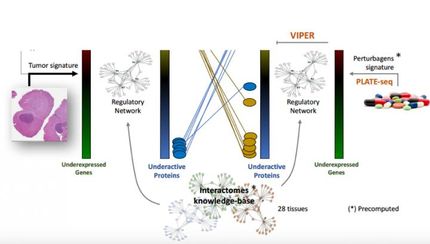Data suggests promising overall survival and progression-free survival with VARGATEF (BIBF 1120)
Latest phase II data for Boehringer Ingelheim's new cancer drug in development
Monotherapy treatment with the triple angiokinase inhibitor BIBF 1120 (planned tradename VARGATEF(TM)) offers promising efficacy and is well tolerated in patients with advanced, relapsed non-small cell lung cancer (NSCLC), according to results from a phase II study in patients with lung cancer. Of particular note were results from a subset of 57 patients with 'good disease state' (ECOG performance status of 0 or 1): these patients experienced longer overall survival (median overall survival was 9.5 months), longer progression-free survival (PFS; median PFS was 2.9 months) and a higher stable disease rate of 59% compared with the overall study population. The results were presented by Dr Joachim von Pawel from Asklepios Fachkliniken München-Gauting, Germany, at the 1st European Lung Cancer Conference jointly organized by IASLC and ESMO in Geneva, Switzerland.
BIBF 1120, administered as a capsule taken twice daily, is currently being developed by Boehringer Ingelheim and is one of the company's most advanced molecules within the cancer development portfolio. BIBF 1120 is a novel triple angiokinase inhibitor that simultaneously inhibits vascular endothelial growth factor receptors (VEGFRs), platelet-derived growth factor receptors (PDGFRs) and fibroblast growth factor receptors (FGFRs)1 - all of which are crucially involved in the formation of blood vessels.
Commenting on these results, Dr von Pawel stated in Geneva: "This study is very encouraging because it tells us that BIBF 1120 has good efficacy when administered on its own. The substantial clinical effect observed in the subset of 57 patients with 'good' performance status (ECOG 0-1) is very notable and gives us great impetus to continue fully exploring the potential of this molecule." BIBF 1120 was also well tolerated by patients in this study, which is a very important consideration for cancer patients and their physicians. "The most important clinical question for us to address now is how much benefit patients may derive from BIBF 1120 treatment and the place this potential medicine may have in the cancer clinic of the future," he added.
BIBF 1120 is a triple angiokinase inhibitor that simultaneously inhibits vascular endothelial growth factor receptors (VEGFRs), platelet-derived growth factor receptors (PDGFRs) and fibroblast growth factor receptors (FGFRs)1. These growth factors and receptors play an important role in angiogenesis; their inhibition plays a critical role in the prevention of tumour growth and spread.
Most read news
Other news from the department research and development

Get the life science industry in your inbox
By submitting this form you agree that LUMITOS AG will send you the newsletter(s) selected above by email. Your data will not be passed on to third parties. Your data will be stored and processed in accordance with our data protection regulations. LUMITOS may contact you by email for the purpose of advertising or market and opinion surveys. You can revoke your consent at any time without giving reasons to LUMITOS AG, Ernst-Augustin-Str. 2, 12489 Berlin, Germany or by e-mail at revoke@lumitos.com with effect for the future. In addition, each email contains a link to unsubscribe from the corresponding newsletter.





















































